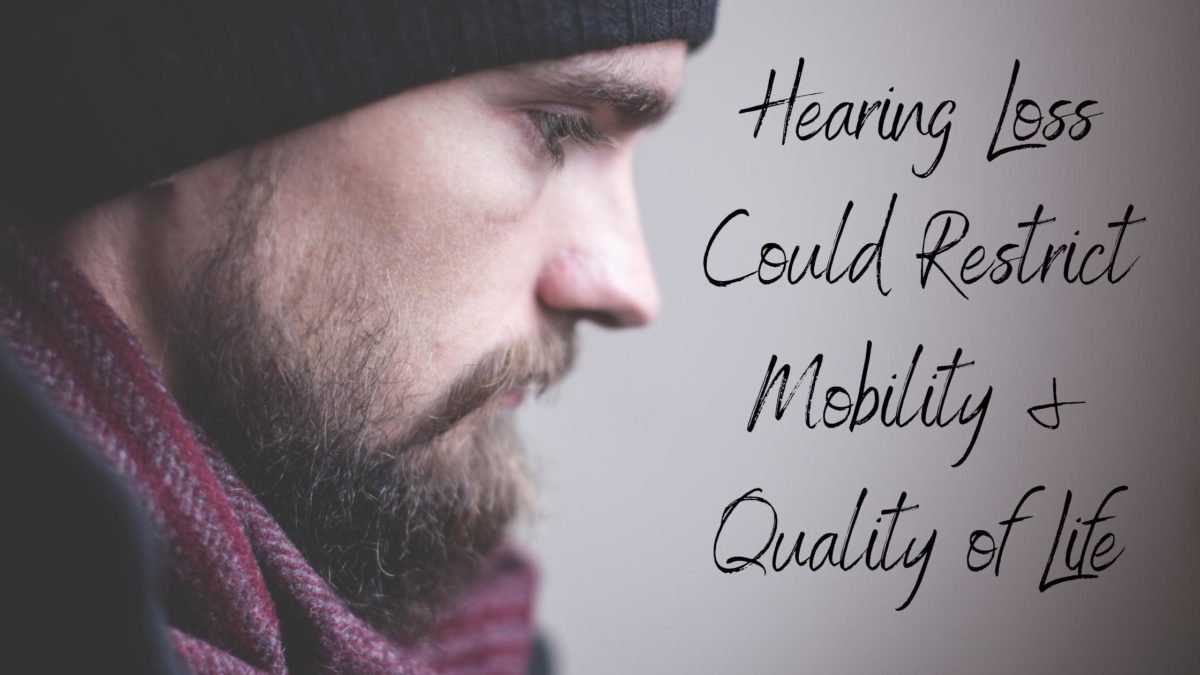
Hearing Loss Could Restrict Mobility & Quality of Life
When you have hearing loss it starts with your ears, but quickly ripples through your health and quality of life. Hearing loss is a communication issue affecting the interconnectedness of our closest relationships with friends and family as well as our professional standing. These struggles quickly affect our mood, causing chronic depression and anxiety however aside from communication barriers hearing loss affects our sense of environment. When we are less aware of spaces around us it sets us up for higher risks of accidents and falls which could lead to hospitalization.
A recent study from Finland explored in-depth the impact that hearing loss has on our mobility. Using a cohort of over 800 older adults with and without hearing loss, the study uncovered data showing that hearing impairments appeared to constrict travel from home and seemed to limit social circles.
Hearing in Noise
When you have hearing loss, it’s surprising how it can limit the way you approach the world. Hearing in noisy spaces can be a challenge for most people, but for those with hearing loss, this struggle is more pronounced. Hearing in noisy environments with competing conversation, background music and distracting sounds can make it a nightmare to hear. It limits the ability to both comprehend speech and locate the sources of sounds.
It’s common for many with hearing impairments to struggle to the point where it may be more tempting to avoid these situations altogether. This means avoiding restaurants, parties, and social gatherings in which you may connect to others. In this way, hearing loss limits not only where you’ll go, but how you connect to others. Large gatherings are not for everyone, but for many they are places where new relationships are formed, enjoying a sense of connectedness and community.
Hearing Loss and Mobility
With these limitations around hearing, gradually as hearing loss develops over years, traveling to unfamiliar locations can become anxiety-producing. Loud public spaces like restaurants, stadiums, and museums can make it hard for people with hearing loss to feel comfortable, and participating in conversation becomes challenging. This also includes travel. Bus stations, train stations, and airports can feel overwhelming and frustrating, as the loudspeaker announcements, mixed with conversations from people everywhere and background music blasting from planters and competing restaurants mean it’s easy to miss critical announcements given verbally over announcement systems, becoming lost and overwhelmed. Many choose to avoid traveling on their own altogether with hearing loss.
Limited Radius of Travel
Often people with unaddressed hearing loss start telling themselves that they are A person “bad at traveling” when it’s the added stress of trying to compensate for sounds they are not hearing. Over time, this discomfort can start to change behavior patterns. While a bus ride across town or an exciting vacation may seem like too much of a hassle. A distaste for traveling even to familiar destinations often develops, constricting the radius a person moves through in their life.
Mobility and Social Isolation
When we are less likely to go out and try new things due to an unaddressed hearing loss it quickly affects our social circle as well. As time moves on and a hearing loss develops, more locations become out of reach to a person. With this, social connections also constrict. When we stop attending parties, religious services, or family dinners, many of us end up feeling lonely and isolated. Subconsciously it’s difficult to identify that the root of this is hearing loss. It may just be rationalized as a natural drift away from social events instead of identifying the root, which is a frustrating communication barrier.
Mobility Research
Finnish researchers at the University of Jyväskylä and the University of Tampere explored the compounded ramifications of hearing loss on mobility. The study followed a population of 75-90-year-old people throughout their day-to-day activities over two years and noted remarkable differences between people with hearing loss and those without. Those with hearing loss’s activities were twice as likely to be restricted to an immediate local area. The study charted various quality of life markers throughout the study period, determining that people with hearing loss experienced a lower quality of life on average.
Treating Hearing Loss
If you have hearing loss it’s important to understand that it doesn’t have to get to this point. By taking action now you can improve your quality of life for the future. Schedule a hearing exam today.
